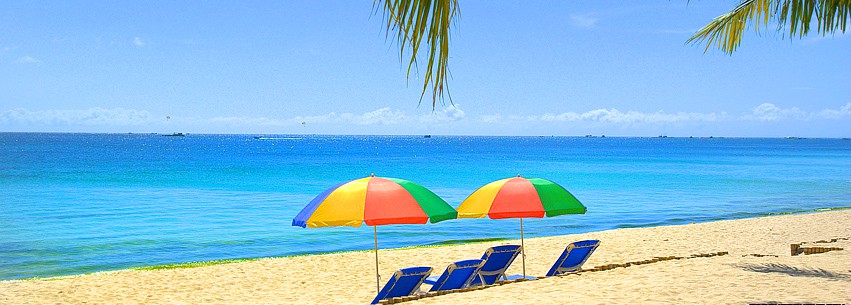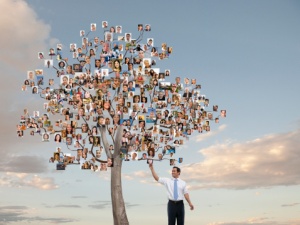Right this minute, there are about 1.5 billion people are on Facebook (Statista 2015). They are interacting with their families, friends, online lovers or business partners all over the world. They update where they are going, what they are eating and who they are being with, in every minute. They feel free to talk with each other and never mind the geographical barrier. The reason is that now we are living in Facebook Era, where we are closer to each other than ever before.
In 2015, Facebook surpasses 17 popular social networks to be the first one due to its 1.5 billion registered accounts (Statista 2015). Following Facebook is QQ with 829 active users, whereas, Instagram and Google+ rank 9th and 10th by 300 million users for each. So, why Facebook is different from other social networks such as Google+, Twitter and Instagram? According to Shih (2009), Facebook sets it apart from the rest by providing three aspects: trusted identity and clearly defined networks, exclusiveness and continual engagement (new feeds). Firstly, the effective means of confirming online identity makes Facebook users exposes clearly to the real offline world. In fact, Facebook asks users to use their real names on Facebook to prevent degraded strangers, spam and junks from anonymity accounts (Lee 2013). Secondly, Facebook plans and control jumps in site traffic by its web design. Thirdly, Facebook encourages people to come back to the site by providing them wall posts, photos, videos which update about friends’ recent activities. This broadcast keeps users away from losing interest and getting new feeds is one of the reasons why people prefer returning to Facebook (Shih 2009). Moreover, a recent research states that today’s popular communities focus on spending online time interacting with people, sharing interests, meeting people, strengthening relationship, and they come to Facebook to make sense of belonging (Lee 2013).
In Vietnam, more than 30 million people (out of 90 million citizen) access Facebook (Vietnamnet Bridge 2014). The diversity of information in Facebook is expressed by bringing audiences news in various aspects such as: latest news about community, recent social issues, most concerned topics. Then just by some clicks, the news is spread out quickly in a very short time. In fact, one Facebook account has maximize 5,000 friends, thus, since one shares a post, thousands of people notice. If it’s a valuable thread which gains lots of “like” and “share”, it could be conveyed to huge Facebook community then has particular impacts on real offline society. For example, the recent issue about chopping down thousands of trees in Hanoi is reported frequently among Facebook community. Ahead of the tree removal, a Facebook page is set up to call for saving trees and against the local government chopping down more trees. After 1 day of publishing, it quickly gathers more than 50,000 followers and articles about felling trees are shared every minutes (RFA 2015). Since an online campaign named “6,700 people for 6,700 trees” has been settled, a revolution protesting against tree felling has taken place in real offline world. Thousands of people go down to the street and demand a half to the chopping down. They mark trees with ribbons and signs with words “I am a healthy tree, please don’t chop me down” (BBC News 2015). They are requesting local government for an appropriate explanation about that tree felling campaign. Finally, Hanoi has to organize a press conference to announce the major decision that they would stop cutting down trees (Vietnam News 2015).
Facebook is one of the most popular social network recent years. Now we could easily understand why Facebook becomes the top site which has most active accounts comparing to other 17 social networks. It’s not only a tool for people to interact with each other in virtual community, but also it has particular impacts on our real-life community.
References:
BBC News 2015, ‘Vietnamese push back on Facebook to save Hanoi’s trees’, BBC News, March 24, 2015, viewed Apr 20, 2015, http://www.bbc.com/news/blogs-trending-31991940
Lee D. 2013, ‘Six ideas for making social media safe – could they work?’, BBC News, August 7, 2013, viewed Apr 20, 2015, http://www.bbc.com/news/technology-23601986
RFA 2015, ‘Vietnam’s Capital City Backtracks on Tree Removal Plan Following Public Outcry’, Radio Free Asia Organization, Mar 20, 2015, viewed Apr 20, 2015, http://www.rfa.org/english/news/vietnam/trees-03202015172506.html
Statista 2015, ‘Leading social networks worldwide as of March 2015, ranked by number of active users’, The Statistic Portal 2015, viewed Apr 20, 2015, http://www.statista.com/statistics/272014/global-social-networks-ranked-by-number-of-users/
Shih C. 2009, ‘The Facebook Era: tapping online social networks to build better products, reach new audiences, and sell more stuff’, Pearson Education published, pp.32-42.
Vietnamnet Bridge 2014, ‘Facebook has 25 million users in Vietnam’, Vietnamnet, May 25, 2014, viewed Apr 20, 2015, http://english.vietnamnet.vn/fms/science-it/103044/facebook-has-25-million-users-in-vietnam.html
Vietnam News 2015, ‘Hanoi stops felling trees’, Vietnam News, March 21, 2015, viewed Apr 20, 2015, http://vietnamnews.vn/society/267881/ha-noi-stops-felling-trees.html

